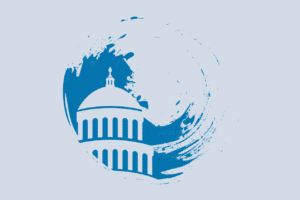Federal / Agency News

Congress Advances End-of-Year Spending Bill, Tax Package
Yesterday the House of Representatives voted to approve federal funding for the remainder of FY 2020, which will provide $738 billion to the military and $632 billion to non-defense agencies. The Senate is expected to pass the measures before the current continuing resolution expires on December 20, and the White House has indicated President Trump will sign them into law.

OCC Releases CRA Proposed Rule
Last week the Office of the Comptroller of the Currency (OCC) and the Federal Deposit Insurance Corporation (FDIC) released a proposed rule that would modernize the Community Reinvestment Act (CRA) Regulations. The proposal would overhaul CRA assessment boundaries, criteria for eligible CRA activities, and how banks are scored overall for their performance.

Senators Introduce Eviction Crisis Act
Senators Michael Bennet (D-CO) and Rob Portman (R-OH) introduced the Eviction Crisis Act of 2019 to shed light on the root causes of the eviction crisis, reduce preventable evictions and limit the devastation to families when eviction is unavoidable.

Legislation Introduced to Establish Reporting Requirements for Opportunity Zone Incentive
U.S. Senator Tim Scott (R-SC) was joined today by Senate Finance Committee Chairman Chuck Grassley (R-IA), Senators Marco Rubio (R-FL), Shelley Moore Capito (R-WV), Todd Young (R-IN), Joni Ernst (R-IA), Bill Cassidy (R-LA), and Cory Gardner (R-CO) in the introduction the IMPACT Act, which would reinstate and expand reporting requirements to determine the impact of the more than 8,700 Opportunity Zones across the country.

IRS Issues BEAT Tax Rules
The Internal Revenue Service (IRS) has issued a final regulation on the implementation of the the base erosion and anti-abuse (“BEAT”) tax, which was part of the Tax Cuts and Jobs Act and was designed to prevent the reduction of tax liability by certain large corporate taxpayers through certain payments made to foreign related parties and certain tax credits. The BEAT Tax impacts certain LIHTC, NMTC and Historic Credit investors that are either foreign owned or have significant foreign operations. It has the potential to erode an investor’s benefit from tax credits and losses over time. The final regulations retain the basic approach and structure of the proposed regulations, with certain revisions.

HUD Issues Request for Information on Eliminating Regulatory Barriers to Affordable Housing
The U.S. Department of Housing and Urban Development (HUD) published a Request for Information (RFI) seeking public comment on Federal, State, local, and Tribal laws, regulations, land use requirements, and administrative practices that artificially raise the costs of affordable housing development and contribute to shortages in America’s housing supply.

Democratic Presidential Debate Features Affordable Housing
At the most recent Democratic presidential debate in Georgia on November 20 several candidates addressed the lack of affordable housing. Kristen Welker, NBC News White House correspondent, directed this question to Tom Steyer “Millions of working Americans are finding that housing has become unaffordable, especially in metropolitan areas. It is particularly acute in your home state of California in places like Los Angeles and San Francisco. Why are you the best person to fix this problem?” Steyer called for the sustainable development of millions of units.

White House Council on Eliminating Regulatory Barriers to Affordable Housing Solicits Information
The White House Council on Eliminating Regulatory Barriers to Affordable Housing through HUD is seeking public comments on all aspects of developing a plan for reducing barriers to affordable housing development, and specifically on federal barriers to affordable housing development; state barriers to affordable housing development; local barriers to affordable housing development; basis for reducing […]

HUD Releases 2020 Operating Cost Adjustment Factors
HUD released the 2020 operating cost adjustment factors (OCAFs) for project-based rental assistance with an anniversary date on or after February 11, 2020. The nationwide OCAF increased by 2.2 percent, ranging from 1.8 percent in Oklahoma to 3.4 percent in Hawaii and the Pacific Islands. OCAFs are annual factors used to adjust Section 8 rents […]

Green New Deal for Public Housing Introduced in House & Senate
Senator Bernie Sanders (D-VT) and Representative Alexandria Ocasio-Cortez (D-NY) introduced the Green New Deal for Public Housing Act. The legislation would create seven grant programs to upgrade public housing units through decarbonization and mixed-use development and repeal the Faircloth Amendment, which prohibits new public housing units above the amount of units owned, operated or assisted by a PHA as of October 1, 1999.

Rep. Omar Introduces Bill to Create 12 Million New Affordable Rental Units
Representative Ilhan Omar (D-MN) introduced the Homes for All Act of 2019, which will dramatically expand the public housing stock in the U.S. and guarantee housing as a human right. The bill will authorize construction of 12 million new public housing and private, permanently affordable rental units.

Chairwoman Waters, Senator Harris Introduce Housing is Infrastructure Act
House Committee on Financial Services Chairwoman Maxine Waters (D-CA) and Senator Kamala Harris (D-CA) introduced the Housing is Infrastructure Act of 2019 (H.R. 5187/S. 2951). The bills contain the following investments in housing: